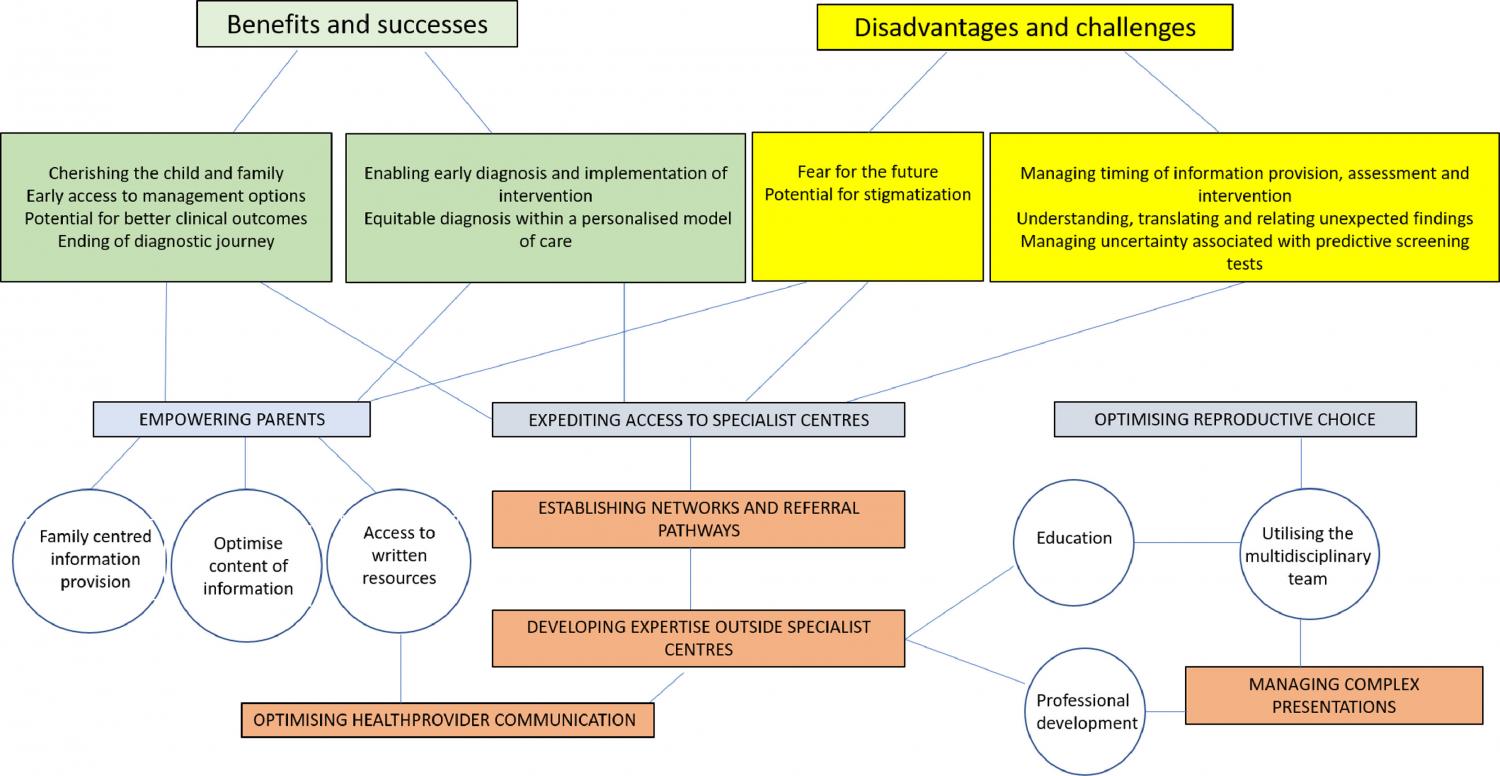
Background: Newborn screening (NBS) for spinal muscular atrophy (SMA) is a recognised model through which health outcomes can be improved. However, perspectives of parents and healthcare professionals (HCPs) involved in such programs are largely unknown.
Methods: A pilot program for SMA ran from August 2018-July 2020. Using a mixed-methods convergent methodology, we used a self-administered questionnaire to understand parents’ perceptions and psychological impact of the program from diagnosis to treatment. We thematically analysed successes/challenges encountered by HCPs and recommendations for service improvement from both participant groups.
Findings: 202,388 infants were screened for SMA and the perceptions of 44 parents and HCPs affected by a positive result in eighteen newborns was ascertained. Parents (n=29, 100%) were satisfied with NBS for SMA. Although screen-positive result was distressing for all parents, quality of life improved over time [CarerQoL-7D baseline median score 4 (SD=1.4) vs six-month median score 8 (SD=1.3), p<0.001)]. Challenges for HCPs included managing the time-critical nature of the pathway whilst remaining cognisant of limitations associated with the predictive screening test.
Interpretation: NBS for SMA fulfils criteria for population-wide screening. Net benefits are acknowledged by stakeholders to optimise lifelong outcomes. Harms including psychological distress associated with a screen-positive result may be managed by targeted psychosocial support, information provision and a personalised model of care together strengthening healthcare systems.
